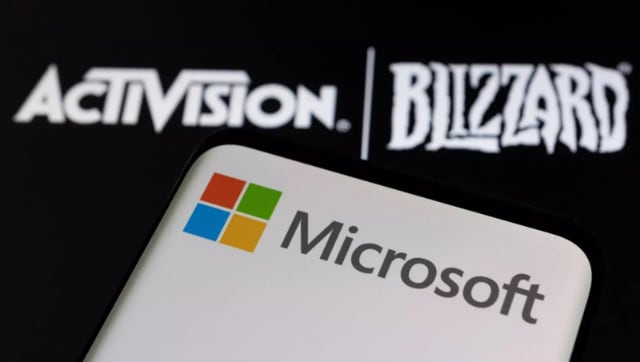Microsoft, Sony sign a deal guaranteeing Activision’s CoD Games on PlayStation for at least 10 years
It looks like Microsoft will finally be acquiring Activision-Blizzard afterall.
Sony and Microsoft have reached a deal that ensures Call of Duty will continue to be available on PlayStation, resolving a dispute about its future. This agreement comes after a US judge dismissed attempts to prevent Microsoft from acquiring games publisher Activision Blizzard. Phil Spencer, Microsoft’s representative, confirmed that both companies have entered into a legally binding agreement to maintain Call of Duty on the gaming platform.
We are pleased to announce that Microsoft and @PlayStation have signed a binding agreement to keep Call of Duty on PlayStation following the acquisition of Activision Blizzard. We look forward to a future where players globally have more choice to play their favorite games.
— Phil Spencer (@XboxP3) July 16, 2023
Related Articles

Mayhem at Microsoft: Tech giant lays off hundreds more after axing 10,000 earlier

Chinese hackers broke into the US Commerce, State Department, confirms Microsoft, US govt
“More Options For Gamers”
According to Spencer, this decision will provide players with more options. This announcement by Spencer concludes a long-standing conflict between the two companies that began when Microsoft announced its plans to acquire Activision Blizzard in early 2022.
The BBC reports that they have confirmation from Microsoft, that this is going to be a 10-year deal, similar to the one that they had signed with Nintendo.
Microsoft’s planned acquisition of Activision for $69 billion (£52.6 billion) is set to become the largest-ever purchase in the gaming industry.
FTC’s Attempt To Block The Merger Has Been Unsuccessful
The US Federal Trade Commission (FTC) has been attempting to prevent Microsoft’s takeover of Activision, creating a divide among regulators worldwide. The FTC has expressed concerns that the merger could harm competition in the gaming market, suggesting that Microsoft is likely to pull Activision’s popular titles from Sony’s PlayStation systems and make them exclusively available on its own Xbox console systems.
The deal with Sony seems designed to at least partially assuage such concerns.
“From Day One of this acquisition, we’ve been committed to addressing the concerns of regulators, platform and game developers, and consumers,” Brad Smith, the vice chair and president of Microsoft, said on Twitter in response to the announcement.
“Even after we cross the finish line for this deal’s approval, we will remain focused on ensuring that Call of Duty remains available on more platforms and for more consumers than ever before,” he added.
On Thursday, a US judge dismissed the FTC’s request to temporarily halt the deal, potentially allowing the merger to be finalised by Tuesday.
However, the FTC, arguing that the acquisition would lead to reduced competition, has sought a “temporary pause” on the deal from a different court.
Nevertheless, Judge Jacqueline Scott Corley doubted that the regulator would succeed in its case.
In her decision, Judge Corley stated, “The FTC has not presented sufficient evidence to demonstrate that the combined company is likely to withdraw Call of Duty from Sony PlayStation, or that its ownership of Activision content would significantly diminish competition in the markets for video game library subscriptions and cloud gaming.”
One Major Hurdle For Microsoft
The Microsoft-Activision merger, although making strides in the acquisition process, faces an additional challenge from the United Kingdom’s Competition and Markets Authority (CMA). This obstacle emerges mere days before the expiration of the agreement between the two companies.The European Union has already granted approval for the deal, while an attempt to block the merger is currently being appealed in the UK.
The Competition and Markets Authority (CMA), which initially opposed the takeover, has now declared that it will take six weeks to thoroughly assess the deal.
For all the latest Technology News Click Here

